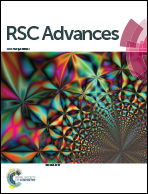Upgrading of anaerobic digestion of waste activated sludge by a hyper-thermophilic–mesophilic temperature-phased process with a recycle system
Abstract
In order to upgrade the conventional mesophilic anaerobic digestion (MD) of waste activated sludge (WAS), a hyper-thermophilic (70 °C, stage I)–mesophilic (35 °C, stage II) temperature-phased anaerobic digestion system with a recycle system (TPAD-R) was constructed, with MD as a control. The accumulation of solids increased with shorter hydraulic retention time (HRT). Compared with MD, TPAD-R improved the reduction of solids by over 10%, and the removal rate of protein in TPAD-R increased by more than 20%. In stage I of TPAD-R an amount of organic matter was solubilized, in a range between 10 g L−1 and 20 g L−1, as soluble chemical oxygen demand (COD), and played an important role in enhancing hydrolysis and acidification. The specific hydrolysis and acidification rates of stage I reached their maximum values after a HRT of 10 days, 2.367 g COD per g VS per day and 1.120 g COD per g VS per day, respectively. Consequently, the methane yield in TPAD-R, primarily produced in stage II, was also improved, 29% higher than that in MD for a HRT of 10 days. Besides compensating for energy loss, TPAD-R obtained a higher net energy than MD, achieving a net energy which was 3.3 kJ g−1 VS more than that in MD for a HRT of 10 days. The TPAD-R proved to be efficient in upgrading the MD of WAS.


 Please wait while we load your content...
Please wait while we load your content...